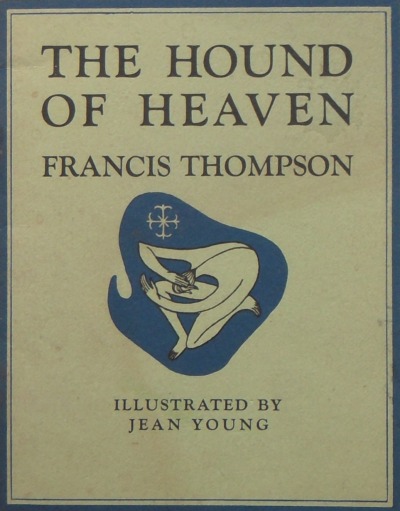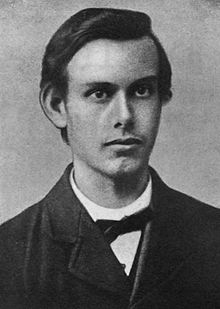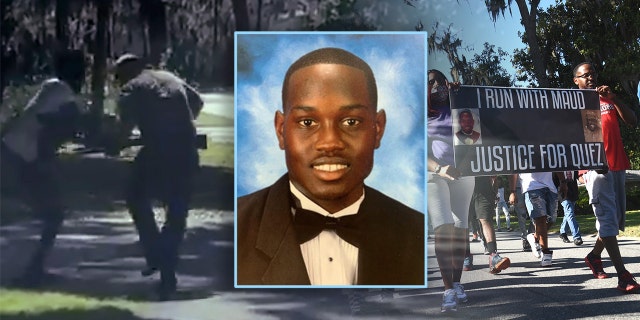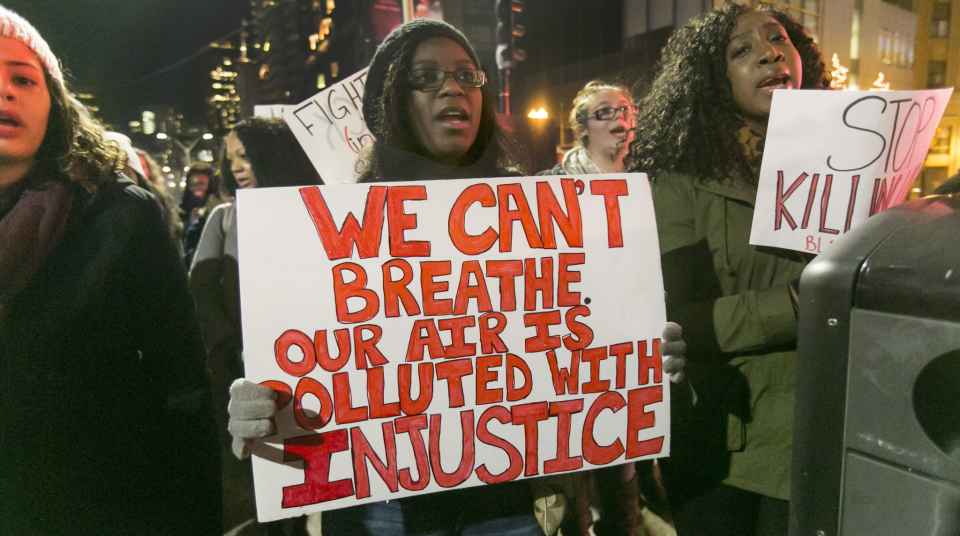
| The Hound of Heaven Poem Link |
| By Francis Thompson (1859–1907) |
| I FLED Him, down the nights and down the days; | |
| I fled Him, down the arches of the years; | |
| I fled Him, down the labyrinthine ways | |
| Of my own mind; and in the mist of tears | |
| I hid from Him, and under running laughter. | 5 |
| Up vistaed hopes I sped; | |
| And shot, precipitated, | |
| Adown Titanic glooms of chasmèd fears, | |
| From those strong Feet that followed, followed after. | |
| But with unhurrying chase, | 10 |
| And unperturbèd pace, | |
| Deliberate speed, majestic instancy, | |
| They beat—and a Voice beat | |
| More instant than the Feet— | |
| ‘All things betray thee, who betrayest Me.’ | 15 |
| I pleaded, outlaw-wise, | |
| By many a hearted casement, curtained red, | |
| Trellised with intertwining charities; | |
| (For, though I knew His love Who followèd, | |
| Yet was I sore adread | 20 |
| Lest, having Him, I must have naught beside). | |
| But, if one little casement parted wide, | |
| The gust of His approach would clash it to. | |
| Fear wist not to evade, as Love wist to pursue. | |
| Across the margent of the world I fled, | 25 |
| And troubled the gold gateways of the stars, | |
| Smiting for shelter on their clangèd bars; | |
| Fretted to dulcet jars | |
| And silvern chatter the pale ports o’ the moon. | |
| I said to Dawn: Be sudden—to Eve: Be soon; | 30 |
| With thy young skiey blossoms heap me over | |
| From this tremendous Lover— | |
| Float thy vague veil about me, lest He see! | |
| I tempted all His servitors, but to find | |
| My own betrayal in their constancy, | 35 |
| In faith to Him their fickleness to me, | |
| Their traitorous trueness, and their loyal deceit. | |
| To all swift things for swiftness did I sue; | |
| Clung to the whistling mane of every wind. | |
| But whether they swept, smoothly fleet, | 40 |
| The long savannahs of the blue; | |
| Or whether, Thunder-driven, | |
| They clanged his chariot ’thwart a heaven, | |
| Plashy with flying lightnings round the spurn o’ their feet:— | |
| Fear wist not to evade as Love wist to pursue. | 45 |
| Still with unhurrying chase, | |
| And unperturbèd pace, | |
| Deliberate speed, majestic instancy, | |
| Came on the following Feet, | |
| And a Voice above their beat— | 50 |
| ‘Naught shelters thee, who wilt not shelter Me.’ | |
| I sought no more that after which I strayed | |
| In face of man or maid; | |
| But still within the little children’s eyes | |
| Seems something, something that replies, | 55 |
| They at least are for me, surely for me! | |
| I turned me to them very wistfully; | |
| But just as their young eyes grew sudden fair | |
| With dawning answers there, | |
| Their angel plucked them from me by the hair. | 60 |
| ‘Come then, ye other children, Nature’s—share | |
| With me’ (said I) ‘your delicate fellowship; | |
| Let me greet you lip to lip, | |
| Let me twine with you caresses, | |
| Wantoning | 65 |
| With our Lady-Mother’s vagrant tresses, | |
| Banqueting | |
| With her in her wind-walled palace, | |
| Underneath her azured daïs, | |
| Quaffing, as your taintless way is, | 70 |
| From a chalice | |
| Lucent-weeping out of the dayspring.’ | |
| So it was done: | |
| I in their delicate fellowship was one— | |
| Drew the bolt of Nature’s secrecies. | 75 |
| I knew all the swift importings | |
| On the wilful face of skies; | |
| I knew how the clouds arise | |
| Spumèd of the wild sea-snortings; | |
| All that’s born or dies | 80 |
| Rose and drooped with; made them shapers | |
| Of mine own moods, or wailful or divine; | |
| With them joyed and was bereaven. | |
| I was heavy with the even, | |
| When she lit her glimmering tapers | 85 |
| Round the day’s dead sanctities. | |
| I laughed in the morning’s eyes. | |
| I triumphed and I saddened with all weather, | |
| Heaven and I wept together, | |
| And its sweet tears were salt with mortal mine; | 90 |
| Against the red throb of its sunset-heart | |
| I laid my own to beat, | |
| And share commingling heat; | |
| But not by that, by that, was eased my human smart. | |
| In vain my tears were wet on Heaven’s grey cheek. | 95 |
| For ah! we know not what each other says, | |
| These things and I; in sound I speak— | |
| Their sound is but their stir, they speak by silences. | |
| Nature, poor stepdame, cannot slake my drouth; | |
| Let her, if she would owe me, | 100 |
| Drop yon blue bosom-veil of sky, and show me | |
| The breasts o’ her tenderness: | |
| Never did any milk of hers once bless | |
| My thirsting mouth. | |
| Nigh and nigh draws the chase, | 105 |
| With unperturbèd pace, | |
| Deliberate speed, majestic instancy; | |
| And past those noisèd Feet | |
| A voice comes yet more fleet— | |
| ‘Lo! naught contents thee, who content’st not Me!’ | 110 |
| Naked I wait Thy love’s uplifted stroke! | |
| My harness piece by piece Thou hast hewn from me, | |
| And smitten me to my knee; | |
| I am defenceless utterly. | |
| I slept, methinks, and woke, | 115 |
| And, slowly gazing, find me stripped in sleep. | |
| In the rash lustihead of my young powers, | |
| I shook the pillaring hours | |
| And pulled my life upon me; grimed with smears, | |
| I stand amid the dust o’ the mounded years— | 120 |
| My mangled youth lies dead beneath the heap. | |
| My days have crackled and gone up in smoke, | |
| Have puffed and burst as sun-starts on a stream. | |
| Yea, faileth now even dream | |
| The dreamer, and the lute the lutanist; | 125 |
| Even the linked fantasies, in whose blossomy twist | |
| I swung the earth a trinket at my wrist, | |
| Are yielding; cords of all too weak account | |
| For earth with heavy griefs so overplussed. | |
| Ah! is Thy love indeed | 130 |
| A weed, albeit an amaranthine weed, | |
| Suffering no flowers except its own to mount? | |
| Ah! must— | |
| Designer infinite!— | |
| Ah! must Thou char the wood ere Thou canst limn with it? | 135 |
| My freshness spent its wavering shower i’ the dust; | |
| And now my heart is as a broken fount, | |
| Wherein tear-drippings stagnate, spilt down ever | |
| From the dank thoughts that shiver | |
| Upon the sighful branches of my mind. | 140 |
| Such is; what is to be? | |
| The pulp so bitter, how shall taste the rind? | |
| I dimly guess what Time in mists confounds; | |
| Yet ever and anon a trumpet sounds | |
| From the hid battlements of Eternity; | 145 |
| Those shaken mists a space unsettle, then | |
| Round the half-glimpsèd turrets slowly wash again. | |
| But not ere him who summoneth | |
| I first have seen, enwound | |
| With glooming robes purpureal, cypress-crowned; | 150 |
| His name I know, and what his trumpet saith. | |
| Whether man’s heart or life it be which yields | |
| Thee harvest, must Thy harvest-fields | |
| Be dunged with rotten death? | |
| Now of that long pursuit | 155 |
| Comes on at hand the bruit; | |
| That Voice is round me like a bursting sea: | |
| ‘And is thy earth so marred, | |
| Shattered in shard on shard? | |
| Lo, all things fly thee, for thou fliest Me! | 160 |
| Strange, piteous, futile thing! | |
| Wherefore should any set thee love apart? | |
| Seeing none but I makes much of naught’ (He said), | |
| ‘And human love needs human meriting: | |
| How hast thou merited— | 165 |
| Of all man’s clotted clay the dingiest clot? | |
| Alack, thou knowest not | |
| How little worthy of any love thou art! | |
| Whom wilt thou find to love ignoble thee, | |
| Save Me, save only Me? | 170 |
| All which I took from thee I did but take, | |
| Not for thy harms, | |
| But just that thou might’st seek it in My arms. | |
| All which thy child’s mistake | |
| Fancies as lost, I have stored for thee at home: | 175 |
| Rise, clasp My hand, and come!’ | |
| Halts by me that footfall: | |
| Is my gloom, after all, | |
| Shade of His hand, outstretched caressingly? | |
| ‘Ah, fondest, blindest, weakest, | 180 |
| I am He Whom thou seekest! | |
| Thou dravest love from thee, who dravest Me.’ |
* * * * * * *
The Hound of Heaven: The Story of Francis Thompson is a compelling documentary that tells the human story behind the poem. This biography follows the journey of a young man who plummeted from the heights of a comfortable life to the depths of drug addiction in London’s seedy alleys…and then found redemption. In the midst of this painful experience, he wrote what many consider to be one of the greatest poems in Christendom. G. K. Chesterton and J. R. R. Tolkien were among those who wrote of his poetic talent, as well as his influence on their own writing.
* * * * * * *
The Hound of Heaven A Modern Adaptation
Oxvision Films | Apr 15, 2014
This is a modern adaptation of the poem The Hound of Heaven written by Francis Thompson produced by Emblem Media LLC. The book was written by Brian and Sally Oxley, Sonja Oxley Peterson with Dr. Devin Brown. Illustrations by Tim Ladwig.This film is based on an illustrated book, The Hound of Heaven: A Modern Adaptation, it is available on Amazon: http://goo.gl/n2XAVn
DrAndrewC | Jan 15, 2015
The Hound of Heaven
"The Hound of Heaven" is a 182-line poem written by English poet Francis Thompson (1859–1907). The poem became famous and was the source of much of Thompson's posthumous reputation. The poem was first published in Thompson's first volume of poems in 1893.[1] It was included in the Oxford Book of English Mystical Verse (1917). Thompson's work was praised by G. K. Chesterton, and it was also an influence on J. R. R. Tolkien, who presented a paper on Thompson in 1914.[2]
This Christian poem has been described as follows:
* * * * * * * * * * *

The Hound of Heaven
A Poem by Francis Thompson (1859-1907)
A Study Guide
Background
Francis Thompson was a devout Roman Catholic who led a tortured life. After abandoning studies to become a priest and later a physician, he drifted and fell into financial hard times. So poverty-stricken was he in London, where he was pursuing a career as a writer, that he sold matches to earn money and borrowed paper on which to write poems. His troubles increased when he developed neuralgia. To relieve the acute pain of this condition, he began taking laudanum, a concoction of opium and ethanol. He became an addict.
In "The Hound of Heaven," the speaker runs from God in order to maintain the pleasures of his dissolute life. One can imagine the speaker's real-life counterpart, Thompson, doing the same as he pursued the groggy pleasures of his opium habit. Meanwhile, he contracted tuberculosis. Though he fought his drug habit, he eventually succumbed to TB, dying a month short of his forty-eighth birthday.
Summary
The speaker is running from God, as do many people caught up in the world. But God pursues him. Although aware of God's love for him, the speaker continues to run, believing that submitting to God means giving up worldly pleasures.
The speaker runs from place to place and even troubles “the gold gateway of the stars” in his effort to escape his pursuer. He pleads with dawn to be brief so that darkness may come to hide him. He asks the evening to cover him. But God still pursues him, saying, “Naught shelters thee, who wilt not shelter Me.”
When the speaker sees little children, he thinks they cheer him on. But he finds no haven with them. Instead, he hears the voice of his pursuer:
"Lo! naught contents thee, who content’st not Me!"
His days pass swiftly when he swings “the earth a trinket at my wrist,” but eventually his youth stands “amid the dust o' the mounded years.” The happiness he sought in the things of the world has eluded him.
A trumpet sounds from the battlements of eternity through the confounding mist of time. Then follows a loud voice: “Lo, all things fly thee, for thou fliest Me!” It asks the speaker whether he has earned the love of another human, then answers,
Alack, thou knowest notHow little worthy of any love thou art!Whom wilt thou find to love ignoble thee,Save Me, only Me?
God explains that what He took from the speaker—the pleasures that led him in the wrong direction—was not intended to hurt him but to help him find his way to the right path. The happiness that you think you lost, God says, is not lost but “stored for thee at home.”
“Rise, clasp My hand, and come!”
The speaker wonders whether the gloom he feels is nothing more than the shade cast by the hand of God reaching out to him. God tells him that the happiness he sought by running away was following him all the time.
* * * * * * * * * * *
Francis Thompson
- For others with this name, see Francis Thompson (disambiguation).
Francis Thompson
| |
|---|---|

Thompson in 1877.
| |
| Born | 16 December 1859 |
| Died | 13 November 1907 (aged 47) |
| Resting place | St. Mary's Cemetery Kensal Green |
| Nationality | English |
| Known for | Ethereal poetry Over 50 poems; essays Hound of Heaven |
Francis Thompson (16 December 1859 – 13 November 1907) was an English poet and Catholic mystic. At the behest of his father, a doctor, he entered medical school at the age of 18, but at 26 left home to pursue his talent as a writer and poet. He spent three years on the streets of London, supporting himself with menial labour, becoming addicted to opium which he took to relieve a nervous problem.
In 1888 a married couple, publishers, read his poetry and took him into their home for a time. They were to publish his first book Poems in 1893. In 1897, he switched to writing prose, drawing inspiration from life in the countryside, Wales and Storrington. His health, always fragile, continued to deteriorate and he died of tuberculosis in 1907. By that time he had published three books of poetry, along with other works and essays.
Early life and study
Thompson was born in Winckley Street, Preston, Lancashire. His father, Charles, was a doctor who had converted to Roman Catholicism, following his brother Edward Healy Thompson, a friend of Cardinal Manning. Edward along with John Costall Thompson, Francis' uncles, were both authors. Francis had a brother who died in infancy, and three younger sisters.[1]
At the age of eleven, Thompson was sent to Ushaw College, a Catholic seminary near Durham. A frail, delicate and extremely shy boy, he was described by his school fellows in 1870 as 'mooney' or abstracted but happy enough. He could be recognised from afar along an 'ambulacrum' or corridor by his habit of sidling sheepishly along the wall with the collar of his coat turned up. Most of his leisure time was spent in the college library where he was fond of history and poetry books. It was noticed that despite the distractions in the library of catapult fights and general mayhem, he had the ability to shut himself off and continue to be absorbed in his reading. As he advanced up the college he became more skilled at writing and his friends remembered that out of twenty examination essays he obtained first place on sixteen occasions. Once he was punished with a beating for being the last boy to be ready for PE drill. He had no interest in Mathematics and, in his final exam, he came last. The only sport in which he developed an interest was Handball and it is said he achieved a standard above the average. He became a connoisseur of cricket though he rarely participated. In preparation for Ushaw College's centenary celebrations due to take place in 1908, Thompson, by then a celebrated poet, was approached to write a Jubilee Ode to mark the occasion. The poet was delighted that the assignment had been offered to him and it is said that he looked forward to seeing his 'College home' once more. His death, however, in 1907 meant that the commission was never carried out.
Thompson studied medicine for nearly eight years at Owens College, now the University of Manchester. While excelling in essay writing, he took no interest in his medical studies; he had a passion for poetry and for watching cricket matches. He never practised as a doctor, and to escape the reproaches of his father he tried to enlist as a soldier but was rejected for his slightness of stature. Then in 1885 he fled, penniless, to London, where he tried to make a living as a writer, in the meantime taking odd jobs – working for a bootmaker and booksellers, selling matches. During this time, he became addicted to opium, which he had first taken as medicine for ill health, having experienced a nervous breakdown while still in Manchester. He lived on the streets of Charing Cross and slept by the River Thames, with the homeless and other addicts. He was turned down by Oxford University, not because he was unqualified, but because of his addiction.[2] Thompson contemplated suicide in his nadir of despair, but was saved from completing the action through a vision which he believed to be that of a youthful poet Thomas Chatterton, who had committed suicide over a century earlier.[3] A prostitute whose identity Thompson never revealed, befriended him and gave him lodgings. Thompson later described her in his poetry as his saviour.[2]
Writing career
In 1888, after three years on the streets, he was 'discovered' after sending his poetry to the magazine Merrie England. He was sought out by the magazine's editors, Wilfrid and Alice Meynell, who recognised the value of his work. They took him into their home and, concerned about his opium addiction which was at its height following his years on the streets, sent him to Our Lady of England Priory, Storrington, for a couple of years. He continued to take opium but in small doses at irregular intervals, to relieve nerve pain.[2]
Francis wrote most of his poetry during this period from 1888 – 1897, after which he turned to writing prose. He struck up a good relationship with the Meynells who, parents and children, furnished inspiration for some of his poetry. They arranged for publication of his first book Poems in 1893. The book attracted the attention of sympathetic critics in the St James's Gazette and other newspapers, and Coventry Patmore wrote a eulogistic notice in the Fortnightly Review of January 1894. Francis' poem The Hound of Heaven was called by the Bishop of London "one of the most tremendous poems ever written," and by critics "the most wonderful lyric in the language," while the Times of London declared that people will still be learning it 200 years hence. His verse continued to elicit high praise from critics right up to his last volume in 1897. His selected poems published in 1908 contains about 50 pieces in all.[2] Notable among his prose works are an essay on Shelley, "The Life of St. Ignatius", and "Health and Holiness".[4]
Later life and death
Thompson moved around frequently, subsequently living as an invalid at Pantasaph, Flintshire, in Wales and at Storrington. A lifetime of poverty, ill-health, and opium addiction had taken their toll on him, even though he found success in his last years.
Thompson attempted suicide but was saved from completing the action through a vision which he believed to be that of a youthful poet, Thomas Chatterton, who had committed suicide almost a century earlier. Shortly afterwards, a prostitute - whose identity Thompson never revealed - befriended him, gave him lodgings and shared her income with him. Thompson was later to describe her in his poetry as his saviour. She soon disappeared, however, never to return.[5]
Thompson died from tuberculosis at the age of 47, in the Hospital of St John and St Elizabeth, and is buried in St. Mary's Roman Catholic Cemetery in Kensal Green. His tomb bears the last line from a poem he wrote for his godson, a Meynell: Look for me in the nurseries of Heaven.[1]
Style and influence
His most famous poem, The Hound of Heaven, describes the pursuit of the human person by God. Phrases from his poetry have been lifted by others and made famous. The U.S. Supreme Court in Brown II used "with all deliberate speed" for the remedy sought in their famous decision on school desegregation.[6] A phrase in "The Kingdom of God"[7] is the source of the title of Han Suyin's novel A Many-Splendoured Thing. In addition, Thompson wrote the most famous cricket poem, the nostalgic "At Lord's". He also wrote The Poppy (1893), Sister Songs (1895), New Poems (1897), and a posthumously published essay, Shelley (1909).
G. K. Chesterton said shortly after his death that "with Francis Thompson we lost the greatest poetic energy since Browning."[8] Among Thompson's devotees was the young J. R. R. Tolkien, who purchased a volume of Thompson's works in 1913-1914, and later said that it was an important influence on his own writing.[9] Halliday Sutherland borrowed the second line of The Hound of Heaven for the title of his 1933 autobiographical best-seller "The Arches of the Years".[10] The American novelist Madeleine L'Engle used a line from the poem "The Mistress of Vision" as the title of her last Vicki Austin novel, Troubling a Star.
In 2002, Katherine A. Powers, literary columnist for the Boston Globe, called Hound of Heaven "perhaps the most beloved and ubiquitously taught poem among American Catholics for over half a century," adding that Thompson's other poetry lost its popularity amidst anti-Modernism in the Catholic church during most of the twentieth century. However, she agrees that the dawning century is more akin to his spirit: "His medical training and life on the streets gave him a gritty view of reality and a social conscience, and his governing idea that God is immanent in all things and in all experience, so vexatious to both Victorians and the Vatican alike, no longer strikes an alien or heretical note."[11]
In 2012, Chris Ward's biographical filmscript, Visions in the Life of the Victorian poet Francis Thompson 'Hound' was staged at the Riverside Studios, Hammersmith and following that the stage version was taken on a tour of London's churches including St Giles-in-the Fields and in St Olav's (City of London) in May 2014.[12] A film of Hound baced on the life of Francis Thompson has been made into feature film with a cast including Wayne Sleep, Toyah Willcox and Hazel O'Connor, and with Francis Thompson played by Daniel Hutchinson.[13]
Legacy
Thompson's birthplace, in Winckley Street, Preston, is marked by a memorial plaque.[14] The inscription reads: "Francis Thompson poet was born in this house Dec 16 1859. Ever and anon a trumpet sounds, From the hid battlements of eternity." The home in Ashton-under-Lyne where Thompson lived from 1864 to 1885 was also marked with a blue plaque. In 2014, however, the building collapsed.[15]
In 1999 an Australian teacher added Thompson's name to the list of people (that as of 2016 extends to more than 100 individuals) suggested as possible suspects in the infamous Jack the Ripper murders, citing interpretations of his poetry and his medical background, but no physical evidence.[16][17][18]
* * * * * * * * * * *
Poems by Francis Thompson - https://mypoeticside.com/poets/francis-thompson-poems
The Gutenberg Project - https://www.gutenberg.org/files/1469/1469-h/1469-h.htm
 |
| Amazon Link |
Poems by Francis Thompson - https://mypoeticside.com/poets/francis-thompson-poems
The Gutenberg Project - https://www.gutenberg.org/files/1469/1469-h/1469-h.htm
Poems by Francis Thompson - https://www.poemhunter.com/francis-thompson/
* * * * * * * * * * *
The Hound of Heaven, A Modern Adaptation
Oxvision Films - This is a modern adaptation of the poem The Hound of Heaven written by Francis Thompson produced by Emblem Media LLC. The book was written by Brian and Sally Oxley, Sonja Oxley Peterson with Dr. Devin Brown. Illustrations by Tim Ladwig.
This film is based on an illustrated book, The Hound of Heaven: A Modern Adaptation, it is available on Amazon: http://goo.gl/n2XAVn
For more information about Emblem Media or The Hound of Heaven visit:











